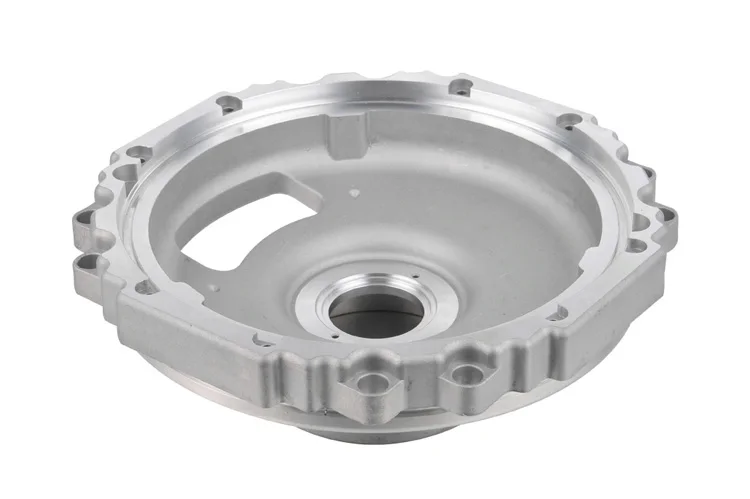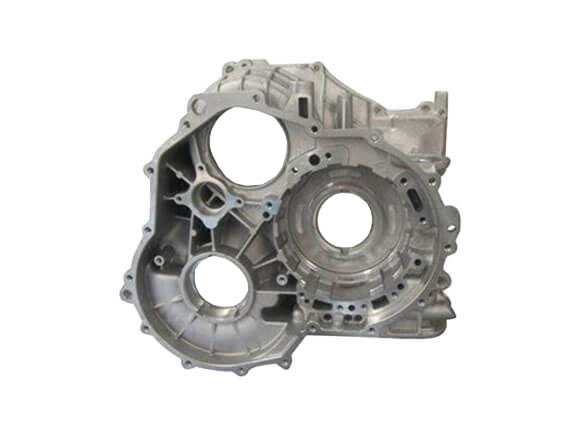Exactly How Aluminum Foundries Add To Numerous Industries: A Thorough Review
Light weight aluminum factories serve as crucial suppliers throughout several markets, including automotive, aerospace, construction, and electronics. They produce components that are not only lightweight but likewise long lasting, enhancing the performance of numerous items. With sophisticated casting techniques and a commitment to sustainability, these shops are adapting to satisfy evolving industry needs. As they innovate, the influence of aluminum castings on different applications increases essential questions about the future of production. What exists in advance for this important sector?
The Function of Light Weight Aluminum Foundries in the Automotive Market
As the automobile industry progressively accepts lightweight materials to enhance fuel effectiveness and efficiency, aluminum factories play a critical role in this advancement. These facilities specialize in the production of aluminum castings, which are crucial components in modern-day lorries. By offering high-strength, lightweight components, light weight aluminum foundries enable manufacturers to lower the overall weight of vehicles, eventually causing boosted fuel economic situation and reduced emissions.
Light weight aluminum's resistance to rust better enhances vehicle long life, making it an eye-catching choice for automakers. Factories use advanced techniques such as die spreading and sand spreading to develop exact and detailed elements, ensuring that they satisfy strict sector standards. In addition, the capacity to recycle aluminum efficiently adds to an extra sustainable manufacturing procedure. As the automotive industry continues to innovate, light weight aluminum factories will continue to be pivotal in delivering the materials required for the future generation of cars, supporting both performance and environmental goals.

Aerospace Applications of Light Weight Aluminum Castings
Light weight aluminum castings are integral to the aerospace sector, supplying a mix of lightweight stamina and toughness that is critical for airplane efficiency. These spreadings are made use of in different parts, such as engine components, architectural frameworks, and landing gear, where weight reduction is vital for gas performance and general safety. The flexibility of aluminum allows for complex geometries that enhance wind resistant efficiency while preserving architectural integrity.
Advancements in casting technologies have boosted the accuracy and surface coating of aluminum components, decreasing the demand for comprehensive post-processing. This performance not only increases production timelines yet also reduces prices, making light weight aluminum an appealing choice for producers. The corrosion resistance of light weight aluminum assurances durability and reliability in severe operating settings, better establishing its function in aerospace applications. As the market progresses, aluminum spreadings continue to be a necessary material, driving technology and sustaining the advancement of next-generation airplane.
Building Sector Advancements With Aluminum
The building and construction sector has significantly embraced aluminum due to its light-weight homes and flexibility, paralleling its effective applications in aerospace. Technologies in aluminum style have brought about stronger, more effective frameworks, allowing designers and building contractors to discover new possibilities. The product's resistance to deterioration and low maintenance requires make it specifically appealing for both commercial and domestic tasks.
Aluminum's convenience helps with the creation of intricate styles, allowing for visual enhancements that were formerly tough with conventional materials. Prefabrication techniques have actually additionally advanced, utilizing light weight aluminum to lower building and construction time and costs significantly. Furthermore, the power performance of light weight aluminum systems-- such as window frames and roof-- adds to sustainable building techniques, straightening with modern ecological requirements. As the building and construction market remains to embrace these improvements, light weight aluminum's role is anticipated to broaden, driving further advancement and adding to the development of resilient facilities.
Electronic devices and the Need for Lightweight Aluminum Components
With the rapid improvement of modern technology, the need for light-weight light weight aluminum components in the electronics industry has surged. As gadgets come to be a lot more mobile and compact, makers look for materials that use both toughness and weight reduction. Light weight aluminum, with its excellent strength-to-weight proportion, has emerged as a favored choice for components such as coverings, check my blog warm sinks, and architectural supports.
The use of light weight aluminum not just improves product performance yet additionally adds to power efficiency, as lighter tools call for less power during operation. Furthermore, light weight aluminum's exceptional conductivity makes it perfect for electronic applications, making sure efficient warm dissipation and decreasing the risk of getting too hot.
As consumer choices change towards lightweight and smooth gizmos, aluminum foundries play an important role in satisfying the evolving demands of the electronics sector (Aluminum Foundry). Their capacity to create high-quality and precise aluminum parts sustains development, allowing makers to push the boundaries of style and performance
Lasting Practices in Light Weight Aluminum Foundries
As the electronics market progressively prioritizes sustainability, light weight aluminum factories are adjusting their practices to align with these environmental goals. Several foundries are carrying out recycling programs that reclaim light weight aluminum scrap, considerably decreasing the requirement for raw materials and minimizing waste. By utilizing energy-efficient innovations, these centers are reducing their carbon footprint; as an example, using electrical heating systems rather than traditional gas-fired ones can cause substantial power financial savings.
Additionally, aluminum foundries are purchasing water preservation actions, such as closed-loop systems that recycle water made use of in cooling processes. These practices not only lower water usage yet additionally alleviate the environmental effect associated with wastewater discharge. In addition, numerous foundries are discovering sustainable energy sources, such as solar and wind power, to meet their energy needs sustainably. Through these efforts, aluminum shops exhibit a dedication to environmental stewardship while proceeding to meet the demands of the electronic devices sector.
Future Fads in Light Weight Aluminum Foundry Technologies
Arising modern technologies are poised to change light weight aluminum foundries, enhancing efficiency and product high quality while advancing sustainability initiatives. Technologies such as fabricated knowledge and artificial intelligence are anticipated to optimize manufacturing processes by predicting devices failures and improving resource allowance. The integration of advanced robotics will certainly improve operations, lowering labor expenses and minimizing human error.
Additive manufacturing, or 3D printing, is likewise acquiring grip, enabling the production of intricate geometries that were previously unattainable with typical methods. This change could lead to significant material cost savings and minimized waste. Additionally, clever shops utilizing IoT (Web of Things) technologies will certainly allow real-time surveillance and information analysis, fostering proactive decision-making.
Finally, the adoption of cleaner melting technologies and reusing techniques will certainly even more reduce the ecological footprint of light weight aluminum foundries, making them extra sustainable. Jointly, these patterns indicate a future where light weight aluminum foundries can operate with higher performance and obligation.
Regularly Asked Concerns
What Are the Ecological Impacts of Aluminum Foundries?

Exactly How Do Foundries Ensure Quality Assurance in Light Weight Aluminum Spreading?
Shops web assure quality assurance in light weight aluminum casting by executing strenuous inspection procedures, using sophisticated modern technology, performing regular product screening, and adhering to industry requirements, therefore keeping consistency and dependability in their completed items. Aluminum Foundry.
What Is the Ordinary Lifespan of Aluminum Cast Components?
The ordinary life expectancy of aluminum cast parts generally varies from 10 to 50 years, depending upon factors such as environmental conditions, use, and maintenance. Correct care can significantly enhance their longevity click here to read and performance with time.
How Are Aluminum Alloys Selected for Specific Applications?
Aluminum alloys are selected based on variables such as stamina, corrosion resistance, weight, and thermal conductivity. Engineers assess the certain needs of applications to identify the most appropriate alloy for finest performance and resilience.
What Are the Security Rules for Aluminum Foundry Workers?
Safety guidelines for aluminum foundry employees include personal protective tools mandates, air flow demands, exposure limits to dangerous products, and procedures for dealing with liquified steel. Compliance warranties worker security and minimizes health and wellness dangers related to shop operations.
As the automotive sector significantly embraces light-weight products to improve gas efficiency and efficiency, aluminum factories play a critical duty in this evolution. As consumer choices shift in the direction of light-weight and sleek gadgets, light weight aluminum foundries play an essential duty in satisfying the advancing needs of the electronics industry. As the electronics sector increasingly focuses on sustainability, aluminum foundries are adapting their practices to align with these environmental objectives. Lots of foundries are executing recycling programs that recover aluminum scrap, considerably minimizing the requirement for raw products and minimizing waste. Safety and security policies for aluminum foundry employees include personal protective equipment requireds, ventilation requirements, direct exposure limits to unsafe materials, and procedures for managing molten metal.